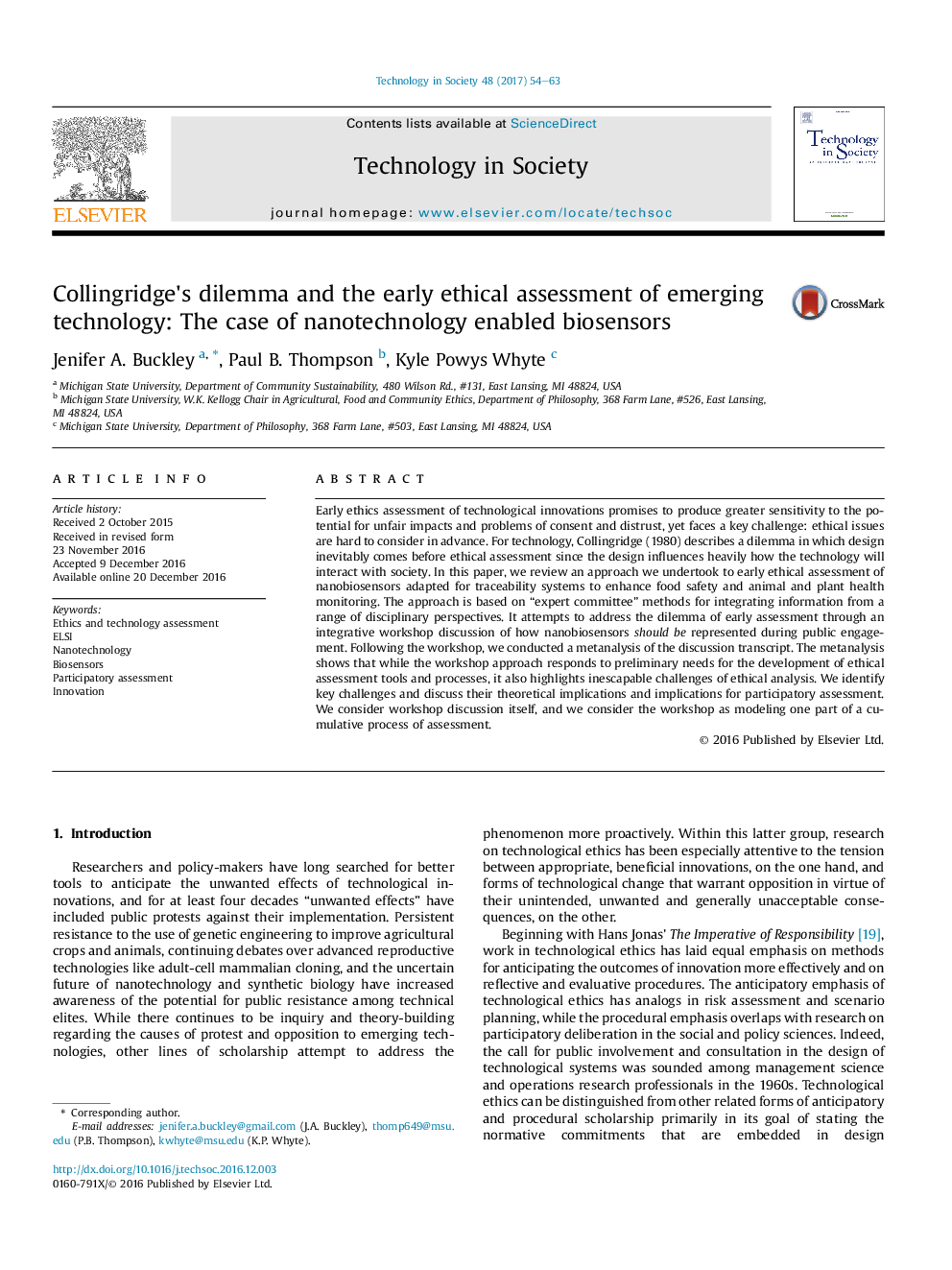| Article ID | Journal | Published Year | Pages | File Type |
|---|---|---|---|---|
| 4941803 | Technology in Society | 2017 | 10 Pages |
Abstract
Early ethics assessment of technological innovations promises to produce greater sensitivity to the potential for unfair impacts and problems of consent and distrust, yet faces a key challenge: ethical issues are hard to consider in advance. For technology, Collingridge (1980) describes a dilemma in which design inevitably comes before ethical assessment since the design influences heavily how the technology will interact with society. In this paper, we review an approach we undertook to early ethical assessment of nanobiosensors adapted for traceability systems to enhance food safety and animal and plant health monitoring. The approach is based on “expert committee” methods for integrating information from a range of disciplinary perspectives. It attempts to address the dilemma of early assessment through an integrative workshop discussion of how nanobiosensors should be represented during public engagement. Following the workshop, we conducted a metanalysis of the discussion transcript. The metanalysis shows that while the workshop approach responds to preliminary needs for the development of ethical assessment tools and processes, it also highlights inescapable challenges of ethical analysis. We identify key challenges and discuss their theoretical implications and implications for participatory assessment. We consider workshop discussion itself, and we consider the workshop as modeling one part of a cumulative process of assessment.
Related Topics
Social Sciences and Humanities
Business, Management and Accounting
Business and International Management
Authors
Jenifer A. Buckley, Paul B. Thompson, Kyle Powys Whyte,
